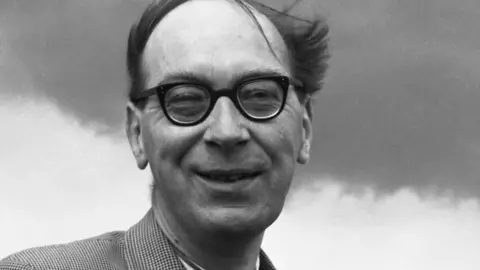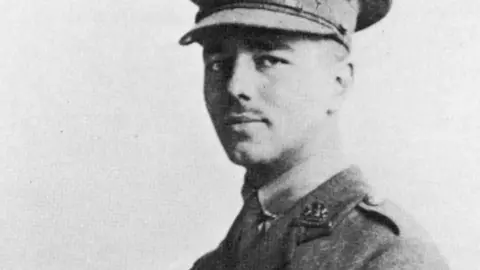Wilfred Owen and Philip Larkin GCSE removal 'cultural vandalism'
 BBC
BBCRemoving poems by Philip Larkin and Wilfred Owen from a GCSE course has been described as "cultural vandalism" by the education secretary.
Nadhim Zahawi criticised the decision by exam board OCR and promised he would be speaking to its bosses.
The examining body said it made the changes to the GCSE poetry anthology to offer more diversity.
"Larkin and Owen are two of our finest poets," the Conservative MP for Stratford-upon-Avon tweeted.
"Removing their work from the curriculum is cultural vandalism. I will be speaking to the exam board to make this clear."
Larkin, born in Coventry, is widely regarded as one of Britain's finest 20th Century poets.
He took up the position of librarian at the University of Hull in 1955 and, in the same year, published his acclaimed collection The Less Deceived.
 Fotosearch/Getty Images
Fotosearch/Getty ImagesWhile Oswestry-born Owen is known for his poems recording the horrors of trench warfare during World War One.
They include Dulce Et Decorum Est, Anthem for Doomed Youth and Strange Meeting.
The changes, first reported by The Times, are aimed at "offering more poems by contemporary and established poets of colour", OCR said.
It added the new poets would also include disabled and LGBT voices.
Among the new names are British-Jamaican poet Raymond Antrobus and Ukrainian-American poet Ilya Kaminsky.
The board added the poems being removed would have largely already been studied and assessed.
Allow Twitter content?
Mr Zahawi said his knowledge of the English language had been improved as a teenager through Larkin's poems.
"We must not deny future students the chance to make a similarly powerful connection with a great British author," he said.

Follow BBC West Midlands on Facebook, Twitter and Instagram. Send your story ideas to: [email protected]
